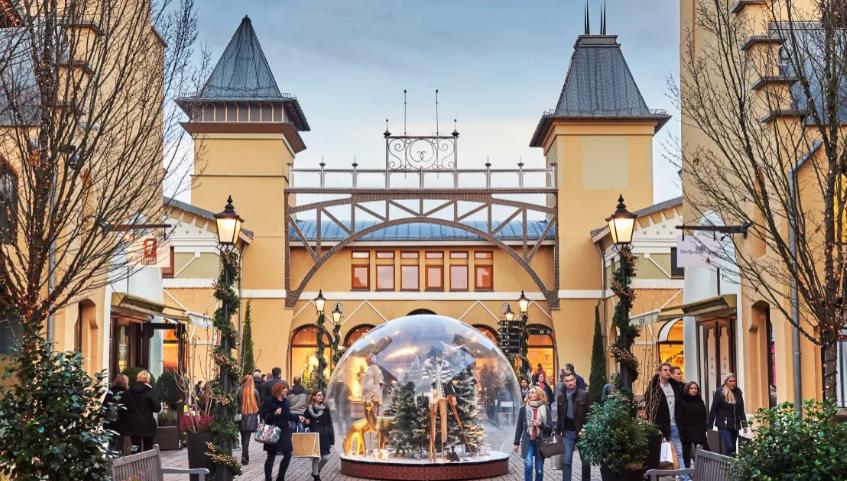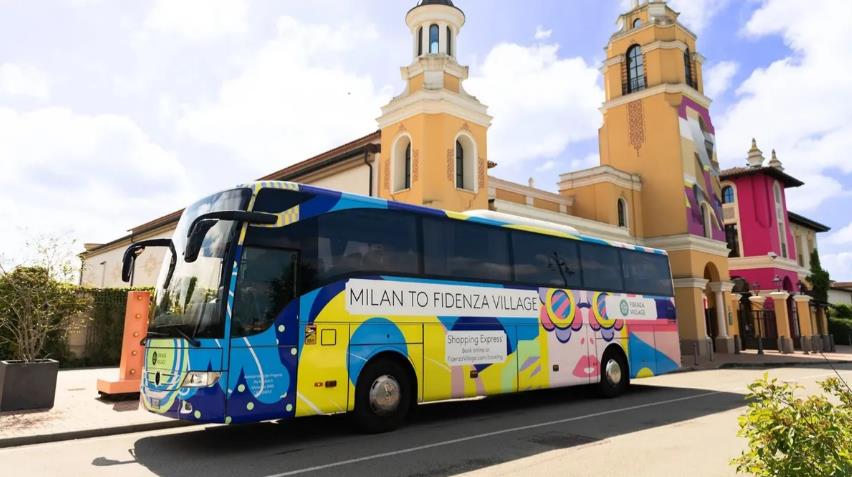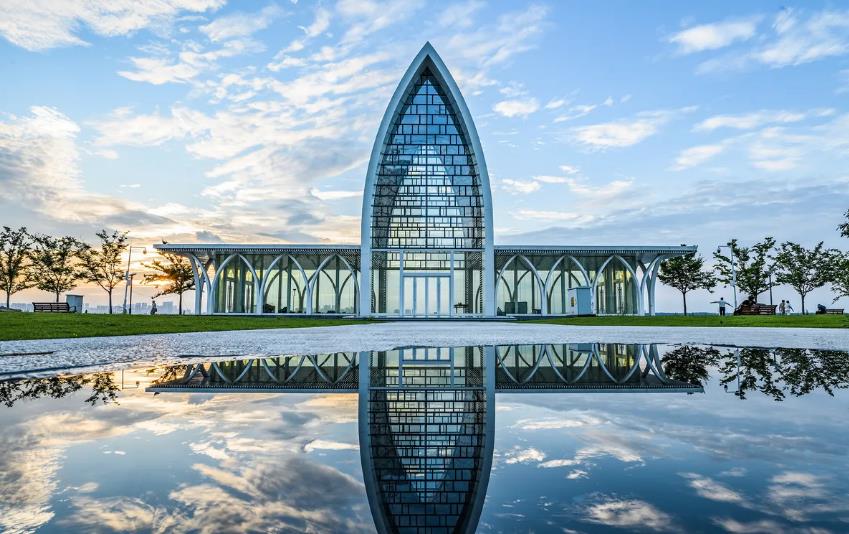https://nz.trip.com/moments/destination-sopot-28084/
2025 Sopot Travel Guide: Must-see attractions, popular food, hotels, transportation routes (updated in May)
Sopot Thời Tiết Hôm Nay
Partly cloudy 11-20℃
All Moments About Sopot
Sopot Beach at dusk (around 9pm due to summer time)
It is a beach resort on the Baltic coast of Eastern Europe. There are many seafood restaurants, and they are all cheap and delicious! It takes about 5 hours by car from Warsaw, but it was worth the effort. #food #great views #couple trip #historical sites #food trip #overseas travel #Eastern EuropeDDR Katz8Sopot is the best
Very nice place. The longest molo in Poland. Beside there is a sandy beach. Around a lot of trees where you can take a break from the sun. Sopot is an Iwonicz city on Baltic sea. Durung the season it is very crowded but stull worth to come and enjoy amezing viev. The Best place to stay is Grand Hotel in front of the sea. On the molo there is a testaurant with very good food.Maciej 81Sopot
Beetti🇵🇱 Sopot Pier (Molo w Sopocie) 🚢
#Poland #Sopot #Baltic Sea Sopot Pier 🕰️Business hours: Open 24 hours (Monday to Sunday) 📍Address: Plac Zdrojowy 2, 81-723 Sopot, Poland 💞Recommended reasons: When you come to the coastal resort town of Sopot⛱️, come out of the train station and follow the signs to the pier. There are many resort hotels on this side of the beach. Under the sunshine, you can see many people sunbathing on the benches or playing on the beach. There are also many yachts parked in the port. You can buy a trip to go out to sea and enjoy the beautiful scenery of the sea🛥️ 🗓️Itinerary: Sopot can be traveled together with Gdańsk and Gdynia. You can take the SKM (a high-speed railway connecting these three cities). The transportation is very convenient. It is recommended to arrange a 2-3 day trip to explore the beautiful coastal scenery.陳皎婕Sopot Seaside Escape: Baltic Bliss & Relaxation 🏖️
#favouriteitinerary Wake up to the sound of waves in Sopot, Poland’s charming coastal retreat. Start your day with a stroll along the Sopot Pier, the longest wooden pier in Europe, offering stunning views of the Baltic Sea. Wander down lively Monte Cassino Street, stopping by cozy cafés and the quirky Crooked House. Relax on the sandy beach or take a dip in the refreshing sea before heading to Sopot Forest Opera, a hidden gem surrounded by lush greenery. If time allows, take a short detour to Gdańsk’s Old Town for a quick taste of its historic charm before returning to Sopot for a sunset drink by the shore. 🌅🍹LATravelAdventureSeriesSopot: A Baltic Sea Tale
When the train slowly pulled into Sopot station, the sea breeze gently brushed my face, as if welcoming this unexpected guest. This small town by the Baltic Sea, like a dreamy watercolor painting, quietly awaited me to uncover its secrets. Sopot, the most charming gem of the Tricity area in Poland, is located between Gdansk and Gdynia. It is a unique resort destination that was once one of Europe's most famous spa towns. My first stop was the famous Molo Sopot. This 515.5-meter-long wooden pier is the longest wooden pier in Europe, like an elegant finger gently touching the Baltic Sea. Standing at the end of the pier, the sea breeze wildly tousled my hair, as if telling countless unfinished stories. An old captain told me the history of the pier. He said it had witnessed countless love stories, adventures, and dreams. Each wooden plank carries the city's memories, like a diary that never closes. Sopot's architecture is a visual feast. The most stunning is the Crooked House, designed by Polish architect Szotynski. The walls curve, the windows twist, and the entire building looks as if it's drunk, yet full of magical charm. I hesitated for a long time in front of this building. It challenged all my notions of architecture. A young local guide told me that this building represents Polish architects' rebellion against tradition and their imagination. At that moment, I seemed to hear the mischievous laughter of the city's soul. The old town's architecture is equally fascinating. German-style villas, exquisite Art Nouveau buildings, each house seems to tell a unique story. Sunlight filters through the leaves, casting dappled shadows on the walls, like a never-ending movie. Sopot's beach is one of the most charming I've ever seen. Soft white sand, azure waters, and elegant villas in the distance. It feels like a secluded paradise, yet full of vitality. I attended a beach yoga class. The rhythm of the waves, the warmth of the sun, seemed to teach me a new way of life. A local yoga teacher told me, "Here, life is a work of art." In the afternoon, I enjoyed a local specialty cocktail at an open-air café on the beach. Tourists from all over the world gathered here, with music and laughter filling the air. An old Polish man shared his life story with me, and his love for life deeply touched me. Sopot is a sanctuary of music. The annual Sopot Music Festival attracts top artists from around the world. I was fortunate to attend an open-air concert where musicians from all over the world wove dreams with their notes. At the famous Forest Opera, I listened to a classical music concert. The forest and music blended perfectly, as if nature itself was the greatest musician. At that moment, I felt the power of music, so pure and profound. A violinist told me that music is the language that connects souls. Those beautiful melodies seemed to transcend time and space, awakening the deepest emotions in humans. Polish cuisine is presented perfectly in Sopot. I attended a traditional Polish cooking class, learning to make classic pierogi and Sopot's special seafood dishes. At the local market, fresh seafood, organic vegetables, and handmade crafts were abundant. I bought exquisite Polish amber jewelry from a century-old family shop. The owner told me the legend of Baltic amber, as if narrating a myth about nature. Monte Cassino Shopping Center offers a modern shopping experience. International brands coexist with local designer works, like a fashion feast. I found unique handmade clothing at a local designer's studio, and their attention to detail fascinated me. In the forests outside Sopot, I attended a meditation class. Sunlight filtered through the leaves, weaving a web of life. A local instructor taught us how to listen to our hearts and converse with nature. A wise man told me that Sopot is not just a place, but a way of life. It teaches people to respect nature, cherish every moment, and live in a slow and profound way. On the eve of my departure, standing at the end of Molo Sopot, the last golden rays of the sunset bathed the Baltic Sea. I seemed to hear the city's faint breath, the echo of centuries of civilization.Tiffany blue blueWindy Wonders: A Day in Sopot's Autumn Charm
#europetrip #poland #Sopot Exploring Sopot, Poland, on a strong wind alert day was an adventure in itself. Bundled up in multiple layers to combat the biting autumn chill, we made the most of our single day in this charming coastal city. Despite the rough sea deterring us from visiting the beach, we enjoyed strolling through Sopot’s streets, marveling at its unique architecture, including the iconic Crooked House. The city’s vibrant atmosphere and picturesque surroundings offered plenty to admire, even as the wind howled through the trees, making it a memorable experience in Poland’s “Pearl of the Baltic.”Maryyngyng11🌟 Sopot's Finest: Unwind in Luxury at Sofitel Grand 🌊✨
--- 🏖️ Sofitel Grand Sopot, Powstancow Warszawy St 12, Sopot, 81-718, Poland Nestled by the breezy Baltic Sea, this gem offers more than just a stay – it's an experience! 🛎️ From the get-go, the service here is top-notch; think of it as being wrapped in a warm, welcoming hug. Perfectly perched, you've got the best of Sopot right on your doorstep. 🚶♂️ Imagine waking up to serene sea views, with rooms that spell pristine and cozy. Each nook is kitted out with all the trimmings for a pampered stay. 🛏️ Plus, the amenities? They're the cherry on top – ensuring your comfort is never second best. 🍒 Whether you're here to chill or explore, Sofitel Grand Sopot ticks all the right boxes for a memorable retreat. 🌟 #Sopot #SopotHotel #SopotTravel_TI***d9🌟 Sopot's Hidden Gem: Luxe Comfort & Scenery 🌊🛏️
Nestled in the heart of Sopot at Kilińskiego 11A, Hotel Testa is the go-to spot for travelers seeking a blend of luxury and local charm. 🧳✨ First off, the location is unbeatable - you're right where the action is, with the best of Sopot at your doorstep. 🚶♂️🏖️ Whether you're here to soak up the sun or explore the city, you've got the perfect base camp. The views? Absolutely stunning. Picture this: you wake up, draw the curtains, and there's the serene Baltic Sea greeting you. 🌅🌊 Now, let's talk about the rooms. They're not just clean; they're immaculate, with a capital 'I'. Plus, the room amenities are top-notch, ensuring your stay is as comfy as it gets. 🛌💤 And when you're not lounging in your room, the hotel's facilities are there to pamper you. From a refreshing spa day to a gourmet meal at the on-site restaurant, they've got you covered. 🍽️🧖♀️ Ready for that Sopot escapade? Hotel Testa is waiting to make it unforgettable! 🌟🏨 #Sopot #SopotHotel #SopotTravelCreativeLoverSopot #poland
Zebi071🌟 Sopot's Finest: Unwind at Haffner Hotel & Spa 🌊
Looking for a slice of luxury on your next trip to Sopot? Say hello to Haffner Hotel & Spa! 🏨 Nestled in the charming town of Sopot, this gem offers more than just a place to sleep. 🛌 Kick back in spacious, spotless rooms decked out with all the amenities you'll ever need. From plush bedding to a mini-bar for those midnight cravings, they've got you covered! 🌙✨ Indulge in some R&R at their top-notch spa facilities, where the stress just melts away. Or, if you're feeling peckish, their dining is a culinary delight – think fresh, flavorful, and oh-so-satisfying! 🍽️😋 Location? You couldn't ask for better. Stroll out the door and you're moments away from Sopot's picturesque sights and sounds. 🌳🚶♂️ Ready to book your stay? Find this slice of paradise at Haffnera 59, Sopot, 81-715, Poland. Your unforgettable getaway awaits! #Sopot #SopotHotel #SopotTravelWandering Souls🌟 Baltic Bliss at Sheraton Sopot! 🌊 Gourmet & Views Galore 🍽️👀
🏨 Nestled on the Baltic coast, Sheraton Sopot Hotel is your plush retreat with a side of sea breeze. Think big, airy rooms and a cleanliness that sparkles like the ocean itself. 🛏️✨ 🍤 Seafood lovers, rejoice! With a smorgasbord of seafood restaurants around, your taste buds are in for a treat without breaking the bank. And trust me, the drive from Warsaw is a scenic journey worth every minute. 🚗🌅 🧖♀️ Indulge in the spa's soothing embrace, where massages and saunas await to melt your stress away. Sip on snazzy drinks at the bar, where the staff's charm is as delightful as their cocktails. 🍹🤗 🍳 Wake up to an incredible breakfast spread that's a feast for the senses. Even early birds get a breakfast kit to-go, ensuring you start your day on a delicious note. 🥐☀️ 📍Powstańców Warszawy 10, Sopot, 81-718, Poland – where your beach resort dreams come to life. #Sopot #SopotHotel #SopotTraveljohnng852Poland Poland sopot marriott hotel food
The hotel pool, spa, food, and even the friendliness were all great. The taste quality is high compared to the price, and the fish dishes are fantastic. Average price per person: 30,000 won for meals and 300,000 won for accommodation #Ho-kang #The best Rating: 5 out of 5 stars어야1

Popular Sopot Topics

2025 Recommended Attractions in Sopot (Updated May)
7 posts

2025 Recommended Guides in Sopot (Updated May)
6 posts

2025 Recommended Hotels in Sopot (Updated May)
4 posts

Destinations related to Sopot

2025 Warsaw Travel Guide: Must-see attractions, popular food, hotels, transportation routes (updated in May)
222 posts

2025 Poznan Travel Guide: Must-see attractions, popular food, hotels, transportation routes (updated in May)
51 posts

2025 Gdansk Travel Guide: Must-see attractions, popular food, hotels, transportation routes (updated in May)
43 posts
Post
Xem Thêm Đề Xuất
Popular Trip Moments
🇵🇱 Sopot Pier (Molo w Sopocie) 🚢 | Sopot is the best | Sopot Seaside Escape: Baltic Bliss & Relaxation 🏖️ | Windy Wonders: A Day in Sopot's Autumn Charm | 🌟 Sopot's Finest: Unwind in Luxury at Sofitel Grand 🌊✨ | 🌟 Sopot's Finest: Unwind at Haffner Hotel & Spa 🌊 | 🌟 Baltic Bliss at Sheraton Sopot! 🌊 Gourmet & Views Galore 🍽️👀 | Sopot Beach at dusk (around 9pm due to summer time) | Poland Poland sopot marriott hotel food
Recommended Attractions at Popular Destinations
Bangkok attraction near me | Manila attraction near me | Tokyo attraction near me | Taipei attraction near me | Hong Kong attraction near me | Seoul attraction near me | Kuala Lumpur attraction near me | Los Angeles attraction near me | Shanghai attraction near me | New York attraction near me | Shenzhen attraction near me | Osaka attraction near me | Singapore attraction near me | London attraction near me | Guangzhou attraction near me | San Francisco attraction near me | Beijing attraction near me | Macau attraction near me | Bali attraction near me | Jakarta attraction near me | Paris attraction near me | Ho Chi Minh City attraction near me | Istanbul attraction near me | Phuket attraction near me | Chicago attraction near me | Seattle attraction near me | Toronto attraction near me | Orlando attraction near me | Cebu attraction near me | Chiang Mai attraction near me
Popular Restaurants in Sopot
Manca Restaurant | U Przyjaciol | Tandoor House | Smak Morza | Symfonia Smakow | PINI Cafe & Vino | Seafood Station Restaurant & Oyster Bar Sopot | Happy New York Cafe & Pub | Fidel | Whiskey on the Rocks | Filiżanka i kubek | Pak Choi | Toscana Restaurant | Crudo | Ristorante Sempre - Sopot | Sempre Pizza e Vino - Sopot Monte Cassino | Pinokio | Petit Paris | Browar Miejski Sopot | Pijalnia Czekolady | Małe Piwko Sopot Beer & Pizza House | PELICAN | Unicorn Restaurant | Cafe Ferber | Secretariat Restaurant | Wave Restaurant | Tandoori Love | Plażarnia | Alcatraz Bar Sopot | Zaprava
Popular Ranked Lists
Top 3 Luxury Hotels in Kavrepalanchok | Top 19 Local Restaurants in Haikou | Top 19 Local Restaurants in Huai'an | Popular Luxury Hotels in Fes-Meknes | Popular Best Things to Do in Zhongxiang | Popular Local Restaurants in Zhongshan | Top 10 Local Restaurants in Cebu | Popular Luxury Hotels Near Manzanillo | Popular Best Things to Do in Dongtai | Top 19 Local Restaurants in Shaoxing | Popular Best Things to Do in Wuzhong | Popular Luxury Hotels in Oslo County | Popular Best Things to Do in Liancheng | Top 3 Best Things to Do in Fuding | Popular Luxury Hotels Near Fishers | Popular Best Things to Do in Danba | Top 6 Best Things to Do in Fenghuang | Popular Best Things to Do in Leye | Popular Luxury Hotels in Dhofar | Popular Luxury Hotels in Al Ula | Popular Best Things to Do in Xinchang | Popular Luxury Hotels in Kieni East | Popular Best Things to Do in Suifenhe | Top 19 Local Restaurants in Singapore | Popular Luxury Hotels in Koyaki | Popular Best Things to Do in Huainan | Popular Luxury Hotels Near Thermi | Top 7 Luxury Hotels in Galle | Popular Best Things to Do in Lvliang | Popular Luxury Hotels Near Varberg
Payment Methods
Our Partners
Copyright © 2025 Trip.com Travel Singapore Pte. Ltd. All rights reserved
Site Operator: Trip.com Travel Singapore Pte. Ltd.
Site Operator: Trip.com Travel Singapore Pte. Ltd.